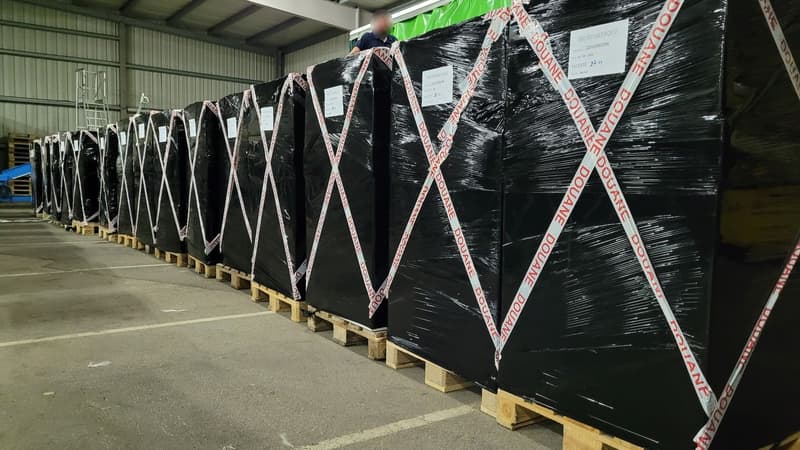The results of French customs are at historic levels in 2022, after a year 2021 already marked by record seizures, particularly in the counterfeiting and tobacco trafficking sectors, according to a report published this Thursday.
The fight against counterfeiting reflects a doubling of the volumes seized in two years: 11.53 million counterfeit items were intercepted in 2022, compared to 9.1 million in 2021 (+27%) and 5.6 million in 2020.
“Among the seized goods, 5.8 million toys and games, 778,000 body care products, 479,000 clothing items and accessories, 374,000 drinks and food,” said the Ministry of Public Accounts, on which customs depends, in a press release.
In the fight against tobacco smuggling, customs seizures reached a new record last year with 640.1 tons of tobacco and cigarettes seized, compared to 402 tons in 2021 (+59.2%), with the dismantling of several clandestine tobacco factories in the national territory.
“A 2023-2025 action plan has already been put in place to further strengthen the mobilization of customs services in the fight against this traffic and to counteract the traffic that is diversifying and structuring such as narcotics,” the ministry said in your statement.
Drug seizures continue
Although drug seizures fell slightly last year, they remain at a fairly high level: 104.53 tons of drugs (115.4 tons last year) with an estimated illicit resale value of more than 1,041 million euros, that is, 80% of the amounts seized in national territory by all law enforcement agencies. This represents 18.3 tons of cocaine (18.62 tons in 2021).
The year 2022 was marked by a new increase in the seizures of criminal assets with 175.5 million euros intercepted or seized by customs bailiffs, compared to 125.1 million in 2021 (+40%).
The fight against tax, social and customs fraud accounted for 30% of Tracfin’s activity in 2022, that is, 1,500 million euros.
Bercy’s financial intelligence unit monitors the emergence and evolution of new fraud schemes, such as those related to crypto assets, in particular the non-declaration or reduction of capital gains resulting from the sale of non-fungible tokens (NFTs), or even fraud in state aid plans such as the personal training account (CPF).
Source: BFM TV


